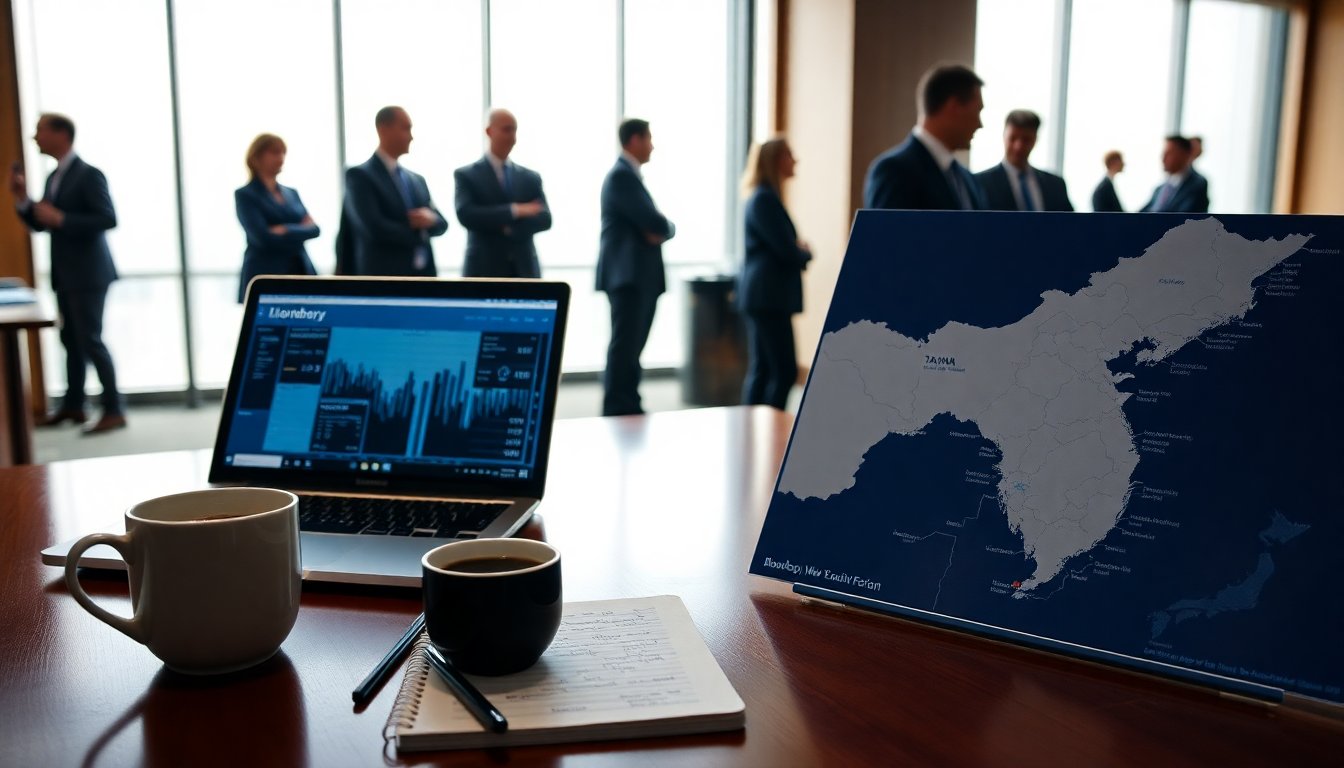Table of Contents
In a recent address at the Bloomberg New Economy Forum, Singapore’s Prime Minister Lawrence Wong addressed the increasing tensions in the Taiwan Strait. He expressed hope that both China and Japan could engage in constructive dialogue to resolve their differences. His remarks followed controversial statements from Japan’s Prime Minister Sanae Takaichi, which have heightened regional anxieties.
Wong emphasized that Singapore, alongside its Southeast Asian neighbors, supports Japan’s expanding role in regional security. This shift is deemed essential for fostering stability in a region increasingly marked by geopolitical strife.
Context of rising tensions
The Taiwan Strait has consistently been a hotspot for geopolitical tension, particularly involving China and Taiwan, as well as Japan, which holds significant interests in the region. Recently, Takaichi’s statements about Japan’s potential military involvement in the event of a conflict have drawn considerable attention and prompted discussions about the broader implications of such a position.
Wong’s remarks arise as the international community closely observes the evolving situation in the area. The Prime Minister’s appeal for cooperation signifies a wider aspiration among Southeast Asian nations to uphold peace and security while navigating the intricate dynamics of their relations with larger powers.
The role of Southeast Asia
Southeast Asia occupies a crucial position in the current geopolitical landscape. Countries like Singapore are advocating for diplomatic solutions. Wong’s statement highlights Singapore’s support for Japan’s proactive security role, indicating a growing recognition of Japan’s potential contributions to regional stability.
The tension in the Taiwan Strait extends beyond a bilateral issue, affecting the entire region. Southeast Asian nations are increasingly asserting their interests and pushing for a multilateral approach to security. This marks a shift away from traditional power dynamics.
Implications of Japan’s military stance
Japan’s military discussions and their implications
Japan’s recent discussions regarding military deployment in response to tensions in the Taiwan Strait hold significant implications for the region. As Japan reassesses its defense posture, this prompts a reevaluation of the balance of power in East Asia. Wong’s remarks reflect a cautious optimism that China and Japan may discover common ground amid their differences.
This shifting landscape presents both challenges and opportunities for Southeast Asian nations. As leaders in the region contend with external pressures, there is a growing recognition of the importance of cooperative frameworks that emphasize dialogue over conflict.
The importance of dialogue
Wong’s focus on dialogue is essential for reducing the risk of potential conflicts. The idea that nations can engage in substantive discussions to resolve disputes is fundamental to international diplomacy. By championing this approach, Wong positions Singapore as a proponent of a broader commitment to peace.
The idea of fostering stable relations through communication is essential for preventing tensions from escalating into military confrontations. As the situation in the Taiwan Strait develops, renewed diplomatic efforts may lead to a more peaceful resolution of ongoing issues.
Geopolitical engagement
As Singapore navigates its role in these complex geopolitical waters, Prime Minister Lawrence Wong expresses optimism regarding the potential for China and Japan to resolve their differences peacefully. His comments underscore the importance of dialogue and cooperation in addressing regional tensions.
The international community is hopeful that constructive engagement will overshadow confrontation, paving the way for a more stable and secure future in the Taiwan Strait and beyond.


